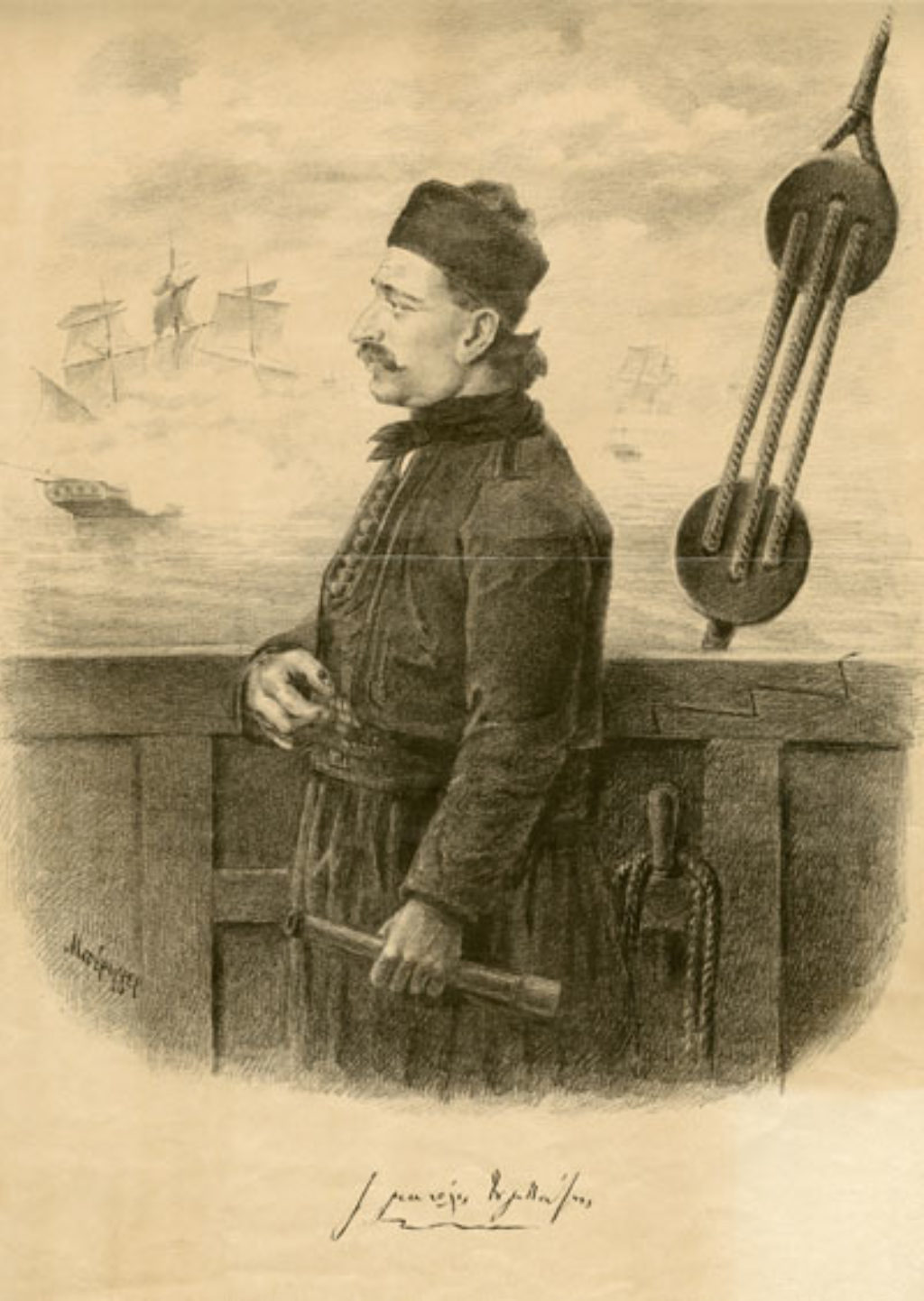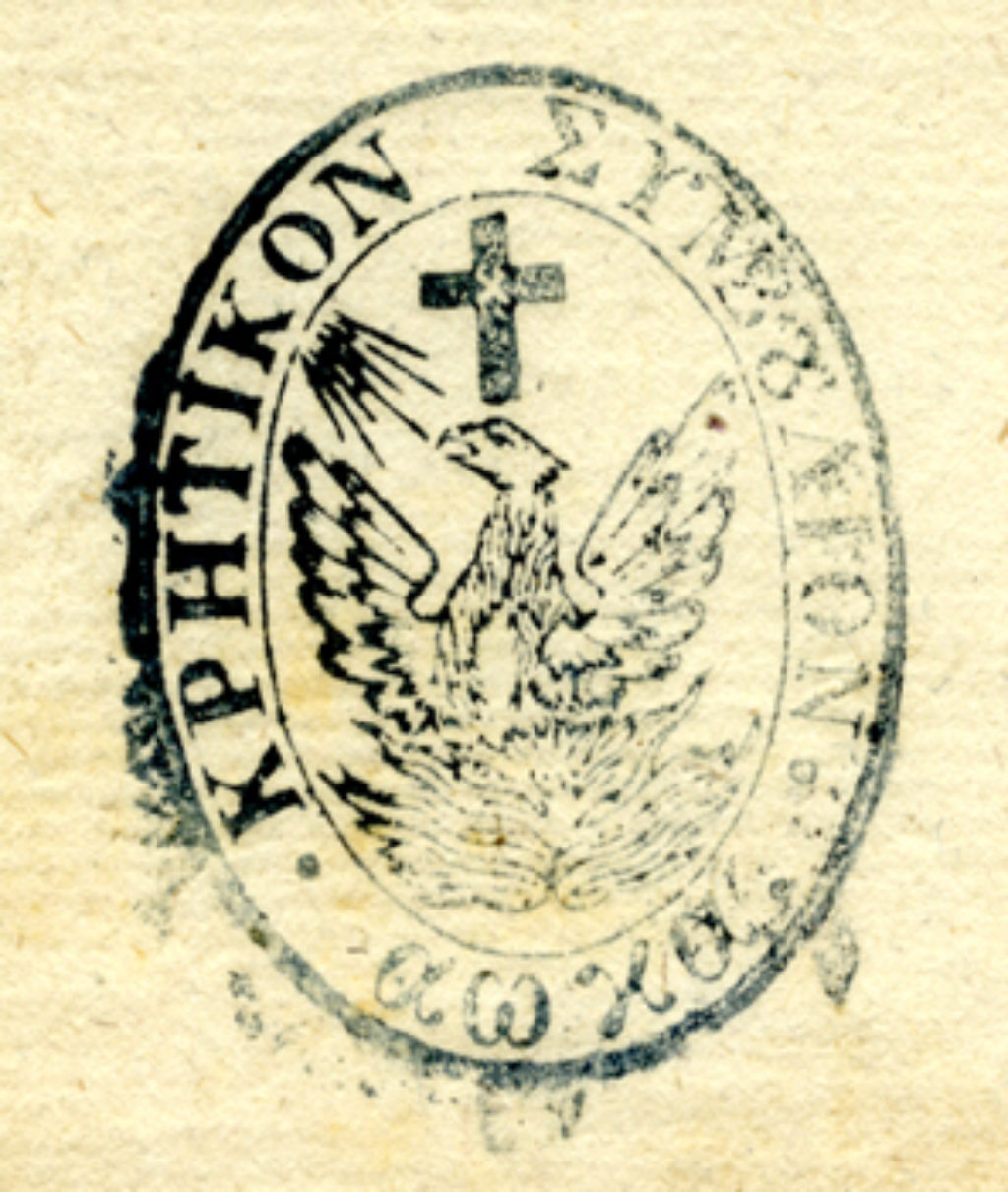ATTEMPTS AT POLITICAL ORGANISATION AND ESTABLISHMENT OF ADMINISTRATIVE STRUCTURES
Attempts in the First Period (1821-1824)
Attempts in the First Period (1821-1824)
Shortly before the outbreak of the revolution, the Sphakians established the Chancelry of Sphakia. Meanwhile, Michael Komninos Afentoulief or Afentoulis, a member of Dimitrios Ypsilantis’s circle, was appointed leader of the revolution in Crete. Despite the Sphakians’ enthusiastic welcome, he soon fell out with them. Petros Skylitzes-Homerides attempted to resolve this dispute by means of the Provisional Constitution of the Island of Crete, which was passed at the Assembly of Armenoi in May 1822, appointing Afentoulief Eparch-General (Provincial Governor) and designating several Sphakians members of the General Chancelry. The crisis, however, was not averted, and in November of the same year Afentoulief was removed from office. He was replaced, at the revolutionaries’ request, by Emmanuel Tombazis from Hydra, who attempted, at the Assembly of Arkoudaina in June 1823, to establish a new system, the Organisation of the One-Year Local Administration of the Island of Crete. However, the definitive defeat of the revolutionaries in March 1824 thwarted this attempt at political organisation too.
The "Cretan Council" (1827-1830)
The "Cretan Council" (1827-1830)
In August 1825, the Provisional Administrative Commission was established at the recently captured fortress of Gramvousa, with the aim of reviving the revolution in Crete. When the revolution was reignited in the autumn of 1827, the Cretan Council was instituted, based on the plan drawn up two years previously at Kastelli in Kissamos. This was a major step towards self-administration and the effort to bring together all the areas of Crete participating in the revolution, via a system of proportional representation. The Council collaborated with the Governor’s representative, originally Friedrich Eduard von Rheineck, then John Hane and lastly Nikolaos Renieris, who was also appointed President of the Council. Its core mandate was to support the revolution and engage in negotiations with the local Muslims. Following the definitive decision to exclude Crete from the Greek state, the Council undertook extensive diplomatic efforts, submitting numerous letters and petitions to the royal courts of Europe. It was dissolved in December 1830.


